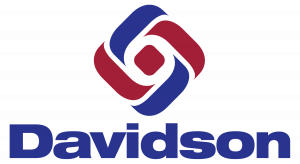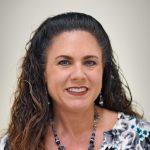

 Katie Bosarge has been with Davidson for over 10 years and has enjoyed a variety of roles with the company.
Katie Bosarge has been with Davidson for over 10 years and has enjoyed a variety of roles with the company.
She currently serves as the Public Relations Communications Manager on the Communications Team.
Connect with Katie on LinkedIn.
TRANSCRIPT
Intro: [00:00:04] Broadcasting live from the Business RadioX studios in Atlanta, Georgia, it’s time for Learning Insights. Brought to you by TrainingPros. When you have more projects than people, TrainingPros can provide you with the right L&D consultant to start your project with confidence. Now, here’s your host.
Lee Kantor: [00:00:27] Lee Kantor here. Another episode of Learning Insights. And I’m excited about this one. But before we get started, it’s important to recognize our sponsor at TrainingPros. Without them, we could not be sharing these stories. Today on Learning Insights, we have Katie Bosarge. And she is with Davidson. Welcome, Katie.
Katie Bosarge: [00:00:45] Well, thank you very much for having me.
Lee Kantor: [00:00:47] Well, I’m excited to learn what you’re up to. Tell us about Davidson. How are you serving folks?
Katie Bosarge: [00:00:52] Well, we are a small defense contractor here in Huntsville, Alabama. And we have employees throughout the whole nation. And most of our missions support the US government and helping to keep our nation safe.
Lee Kantor: [00:01:02] And so, you’ve been dealing with kind of a remote workforce for a while then?
Katie Bosarge: [00:01:08] We have. It’s been a little unusual, but most of our workforce has been working remote probably up until about a month or so ago. So, we’ve had to really pivot and learn different ways to communicate. Of course, Zoom, and the teams and all kinds of different things like that. But our employees have really, really stepped up, and done a great job, and really kept the mission on track. And we’ve been successful so far.
Lee Kantor: [00:01:32] Was that something that — I’m sure at the time, and especially in your industry, where security is so paramount that to securely be able to have your employees elsewhere and to be able to give them the equipment they need and the resources they need in order to effectively work and communicate together, was that a difficult challenge when the pandemic hit, and all of a sudden, now, everybody’s scrambling to figure this out?
Katie Bosarge: [00:01:59] Well, it has been a challenge for a lot of people in our industry, but we have a unique system within our company where we can remote in from remote locations, I guess, into our computer system is the best way to explain it to where it is secure. So, we’re still able to do the work that we need to do, and to serve our customers and serve our nation seamlessly. That has been, actually, for us, not a terrible time period. It’s been not as enjoyable because you don’t see people in the office every day, but we have been able to continue with our work and stay on mission.
Lee Kantor: [00:02:33] Now, were you able to kind of create some of those serendipitous moments and those kind of accidental collisions when you’re meeting people remotely? Were you able to figure any of that out?
Katie Bosarge: [00:02:45] It was very challenging. We have been able to do a little bit through the online platform – Zoom, WebEx and things like that. It’s not the same, though. It’s definitely not the same. But we have been able to accomplish that to a certain degree.
Lee Kantor: [00:03:00] Now, you’ve recently been awarded one of the Best Workplaces. How important is that for you in terms of maybe recruiting and attracting new talent?
Katie Bosarge: [00:03:14] Oh, it has been invaluable. Everyone recognizes that is the gold standard. And for us to be able to put that on our recruiting and use that when we’re trying to bring new employees to our company, it has been a wonderful, wonderful new aspect that we can promote to them, to the new employees in recruiting. We are just really, really honored that our employees thought that highly of our company for us to achieve that certification. But it has definitely been a help for us.
Lee Kantor: [00:03:42] So, now, combined with this remote world that we’re in, at least, right now, has that enabled you to open up to get talent in places maybe you weren’t looking before because, now, you’ve got the world as your oyster?
Katie Bosarge: [00:03:57] That is true. I’m not in the recruiting department directly, but I would imagine that has opened up a lot of things. Of course, some of our work is of a more secure nature where we will need the people to be on site in specific locations once that is a possibility again, but we do have some of our work that could possibly be 100 percent remote. And that would open us up to a lot of different possibilities, people living in different places that could remote in to get their job done.
Lee Kantor: [00:04:30] Now, do you have any advice for folks out there who are trying to keep the company culture going during a time when we’re not seeing each other face to face?
Katie Bosarge: [00:04:40] It is very challenging, but it’s important to really focus on your smaller teams. Not the whole company as a whole, but just on your smaller teams, your different departments. And for us, it’s different contracts where the people work together, and they have a team leader or a manager. And it’s really on that team lead or manager to keep everyone engaged to the best of their ability in this unusual remote world that we’re living in right now, because we’re not able to get together face to face and have your typical lunch and learns, or your Christmas parties, and your summer picnics. So, instead of looking at it as a whole company, we really need to break it down into the smaller departments and smaller areas and just really have that tight, close-knit family type atmosphere and keep everyone engaged and talking as much as we possibly can.
Lee Kantor: [00:05:28] Now, is that something — when the employees are in these small groups, is there a way to transfer some of the best practices and things they are learning in those small groups to the other people kind of company-wide? Like if somebody figured out, “Hey, this is the way we do this. Maybe another department would benefit from that,” do you have kind of systems in place that allow that transfer of knowledge between kind of these little cohorts or departments?
Katie Bosarge: [00:05:54] Yes, that would probably come into our senior leadership meetings. All of the smaller departments are under larger leaders, and that would funnel up to these larger senior leadership meetings. And that can be communicated between the different leaders. And then, also, our HR department is wonderful about spreading the word amongst the employees. And the communications department, the team that I’m on, we try to really make sure everyone is in sync and aware of what the other departments are doing that’s working and try that out in their department. And hopefully, if it keeps one group close together, it can help other groups do the same thing.
Lee Kantor: [00:06:29] Now, is there a story that maybe you can share of some successful implementation of one of these kind of learnings or one of these kind of transfers of knowledge that has happened that you remember?
Katie Bosarge: [00:06:42] Oh, goodness. I honestly can’t think of anything off the top of my head, but I know that we’ve done a lot of brainstorming and sharing of ideas in our group as far as a communications group. And, really, our lead has gone on to share that with the other, especially with HR, because that’s really the team that wants to get out and get the employees engaged, and get everyone is excited and is engaged as we can right now. But the flow of ideas between HR and the communications team is really, really important.
Lee Kantor: [00:07:16] How do you feel that you all do when it comes to kind of leadership training, and then identifying those high potential leaders?
Katie Bosarge: [00:07:25] Well, we have a really, really good program in place. We actually just had a training today, as a matter of fact, with the HR coordinates, with the leaders in our group. And the senior leadership team are really the ones that go out and identify those high potentials and really work with the team that they’re on to get them ready to step into a leadership role when that’s needed.
Lee Kantor: [00:07:48] And then, you’re finding that leadership training helpful? I know you want to keep the folks there as long as possible, but that’s something that it helps build. I think it helps with the recruiting, especially young people knowing that they’re going to learn and grow as they stay connected with the organization.
Katie Bosarge: [00:08:08] Oh, absolutely. Training is so, so very important. And it is definitely a recruiting tool that we use because once you come into a company, you may not know or understand completely what the culture is in that company until you spend time with your team. And then, the leadership training helps to bring everyone together and kind of get everybody on the same page and all moving in the same direction.
Lee Kantor: [00:08:30] So, now, you’ve been with Davidson for a while, right?
Katie Bosarge: [00:08:35] I have. I’ve been with the company for a little over 10 years now. I’ve moved around to several different departments, but it has been a great ride.
Lee Kantor: [00:08:43] And then, there’s Davidson locations around the country?
Katie Bosarge: [00:08:47] There is. Our headquarters offices here in Huntsville, Alabama. We have an office located in Colorado Springs, Colorado. And we have two large teams, not a physical office, but we have large teams at Fort Greely in Alaska, and also at Tyndall Air Force Base down in Panama City Beach, Florida.
Lee Kantor: [00:09:04] So, when you’re working with, I guess, government organizations, and you’re the private sector, does that create different challenges?
Katie Bosarge: [00:09:15] Oh, it does. Yes, it does. But those are things that, over the years, we’ve found out how far we can push to the edge to keep our team together. But there are a lot of different projects and things that our employees are sitting out on different military bases. And it’s a little bit harder to keep those teammates engaged, but that is something that our leadership has done a very, very good job at communicating with them and keeping everyone engaged.
Lee Kantor: [00:09:41] Now, is part of the training on almost how to behave in those kind of environments because it may not be an area that they’ve ever been in before?
Katie Bosarge: [00:09:51] Now, that is true. And that type of training really comes from your direct manager because everyone has different circumstances, depending on where they’re sitting, and you kind of learn the environment of where you work on a daily basis.
Lee Kantor: [00:10:04] And the impact you’re making is so huge, but it’s one of those things where you can’t really brag about it too much, right, because there’s a lot of stuff that’s not for public purview?
Katie Bosarge: [00:10:19] Exactly, exactly. Yeah, that is definitely one of the challenges with any defense contractor or any company that works with the government is we talk about advertising, and promoting, and things like that, and there’s just so much of what we do that we can’t advertise and promote. So, that makes it a little bit more challenging. But especially here in Huntsville and in Colorado Springs, that’s the nature of the whole city. And so, we promote our corporate culture and the environment that the employees work in versus actually kind of the work that we do because we can’t really talk about that all the time.
Lee Kantor: [00:10:52] And that’s why when you did get that great-place-to-work certified certification, it was so important because that was the employees saying that working at Davidson is positive and meaningful. And that’s not-.
Katie Bosarge: [00:11:08] Exactly.
Lee Kantor: [00:11:08] That’s important.
Intro: [00:11:08] Yes, absolutely. It’s very, very important because there’s not a lot of ways for us to go out and say, “Hey, look at all these great programs we’re working on,” because we can’t really tout that kind of thing. But to have our employees step up, and really speak up, and say what a great company this is, that is absolutely wonderful for us.
Lee Kantor: [00:11:30] And this wasn’t just a majority. This was almost everybody who said that. That’s very impressive results.
Katie Bosarge: [00:11:39] Yes, it really was. We were very, very excited.
Lee Kantor: [00:11:42] So, what’s your kind of forecast into 2021? Are you pretty excited about the upcoming year?
Katie Bosarge: [00:11:50] We are. We are. We have several programs that are growing and we’re always chasing new work. It’s just the uncertainty of the environment that we’re in that will dictate whether we get to all come back together and really work face to face, so to speak. But, again, we’re doing pretty well remotely and everyone stay in our mission. So, I think we have a very, very positive outlook for 2021.
Lee Kantor: [00:12:14] And when you do get together, are you kind of whiteboarding out some big party celebration when everybody’s finally back in the same office?
Katie Bosarge: [00:12:24] We are. We are. We are actually celebrating our 25th anniversary in 2021. The company has our 25th anniversary this year. And we are planning a very large celebration. And we’ve, unfortunately, had to put it off a little bit. Our anniversary is actually January, the 28th. So, here in just a few days.
Lee Kantor: [00:12:44] Wow!
Katie Bosarge: [00:12:44] Or actually tomorrow, goodness. That’s tomorrow. But we can’t have an in-person celebration right now. So, we have a big event planned for later in the summer where we hope we can get everyone together.
Lee Kantor: [00:12:57] Well, congratulations on all the success. Is there anything we could be doing to help you? Do you need more employees? Do you need more clients? What is it that can help Davidson grow?
Katie Bosarge: [00:13:09] Oh, we’re always looking for new employees. And anyone that is interested is more than welcome to visit our website, davidson-tech.com. And we have all of our positions listed. And we do have positions all across the country. It’s not just in Huntsville and Colorado Springs. And of course, with the possibility of remote work, that opens up a lot of other options.
Lee Kantor: [00:13:30] Well, congratulations on all your success, Katie. You’re doing important work.
Katie Bosarge: [00:13:34] Thank you.
Lee Kantor: [00:13:36] And we appreciate you.
Katie Bosarge: [00:13:37] Thank you very much. I appreciate that.
Lee Kantor: [00:13:38] All right. This is Lee Kantor. We will see you next time on Learning Insights Radio. And remember this work would not be possible without the support of our sponsor, TrainingPros. Please support them, so we can continue to share these important stories.
Outro: [00:13:53] Thank you for listening. For more information about TrainingPros, visit their website at training-pros.com.
About Training Pros
Since TrainingPros was founded in 1997, they have been dedicated to helping their clients find the right consultant for their projects.
23 years later, they are proud to have helped hundreds of clients complete their projects and thousands of consultants find great assignments. Training Pros continues to focus on helping their clients and consultants as well as their community.














